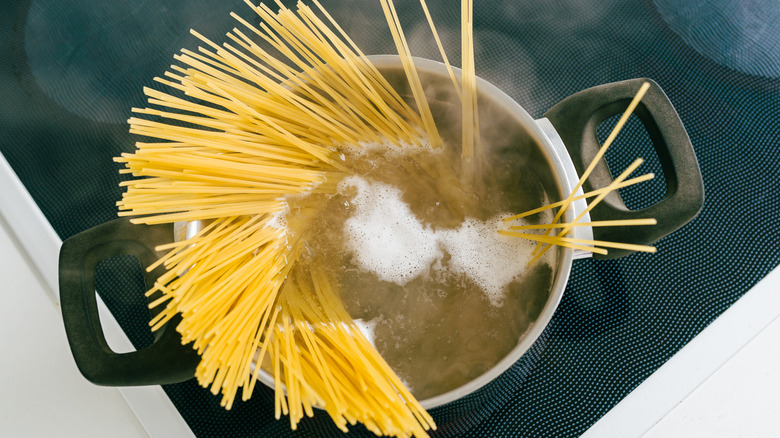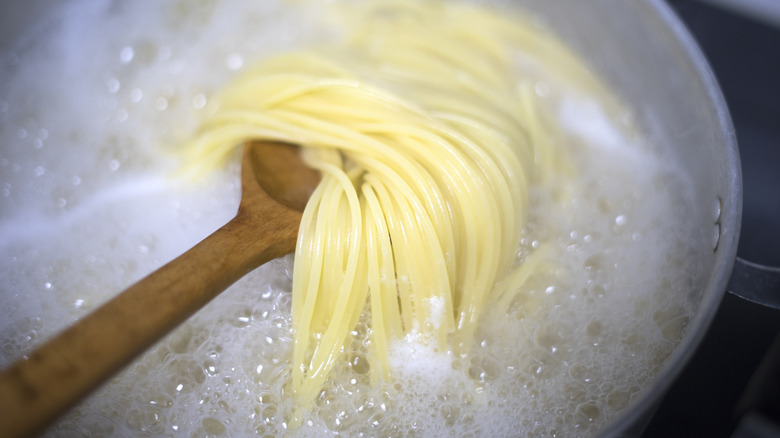Why You Really Should Let Water Boil Before Adding Pasta
For what seems at first glance like a fairly straightforward task, cooking pasta actually presents a lot of potential stumbling blocks between you and success. From knowing how much salt to add to your pasta water to understanding why you should not break your pasta noodles prior to boiling, there's a surprising amount of know-how that goes into preparing this Italian favorite the right way. And that's not the end of it — you should also understand that your water really needs to be fully boiling before you put pasta in it.
Foodie spoke exclusively with Antonio Morichini, chef and owner of Via Vai in New York City, about the importance of boiling pasta water. It may seem like very hot water can get your dinner cooked fine, or that putting it in room temperature water to come to a boil works just a well and means you don't have to stand around and wait for the pot to boil — this irritation became an idiom for a reason, right? But you would be incorrect to think so. "Simply put, non-boiling water can't cook the pasta," Morichini stated.
Boil water for optimal results
To cook pasta properly, you want your salted water to come to a full, rolling boil first. In short, a few timid bubbles on the surface of the pan aren't going to do the job. To judge if pasta water is ready, your liquid needs to hit 212 degrees Fahrenheit, and you should observe quick-moving, dramatic waves of bubbles, as well as copious steam. "Pasta should be added into boiling water, and the water needs to continue boiling, although more softly, after the pasta is thrown in," Morichini confirmed. In other words, you can't relax about temperature once you add your noodles. Consistent, high heat is needed to cook your pasta, although it is all right for your rolling boil to come down to a steady, vigorous simmer.
How long you cook your pasta depends on a number of variables, like whether the noodles are fresh or dried, and the shape of the pasta. Consult the package for recommendations, which should include both an al dente time and "fully cooked" one. When in doubt, Google is a better backup than winging it — both underdone, crunchy and overcooked, slimy pasta are distinctly unpleasant in their own ways.
Oh, and one final last note: once your pasta is done and you are ready to tuck into dinner, don't throw out that precious used water. Instead, you should save it to enhance your homemade bread and enhance other dishes, as recommended by additional experts who spoke on the importance of keeping leftover pasta water around.

